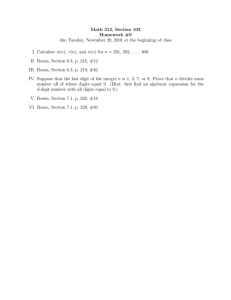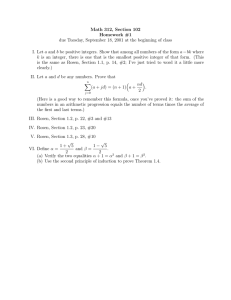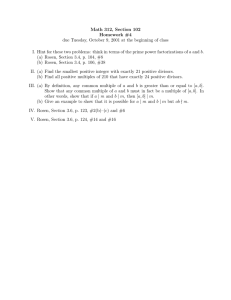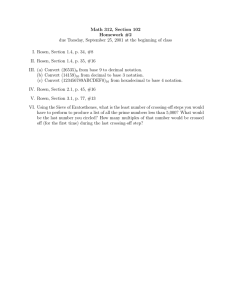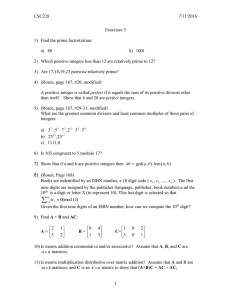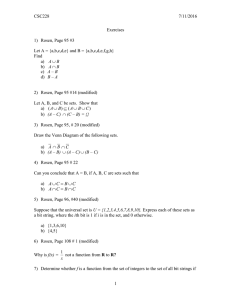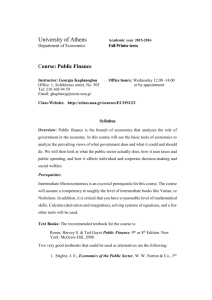Fall 2014, Math 302.504 - Homework Set 1
advertisement
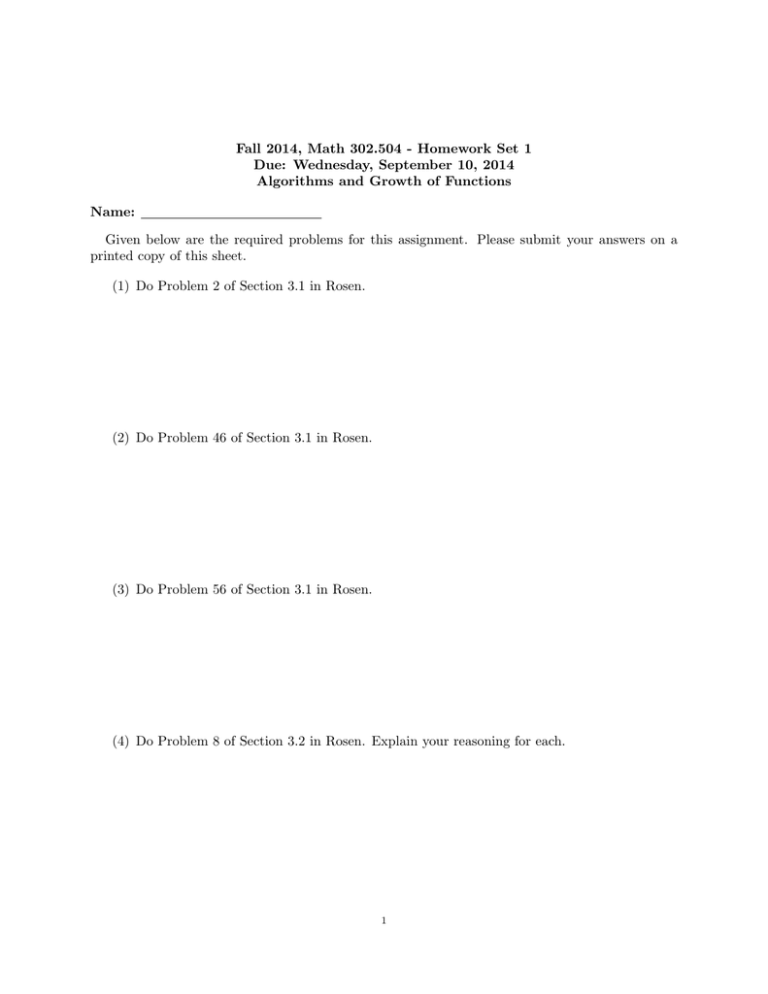
Fall 2014, Math 302.504 - Homework Set 1 Due: Wednesday, September 10, 2014 Algorithms and Growth of Functions Name: Given below are the required problems for this assignment. Please submit your answers on a printed copy of this sheet. (1) Do Problem 2 of Section 3.1 in Rosen. (2) Do Problem 46 of Section 3.1 in Rosen. (3) Do Problem 56 of Section 3.1 in Rosen. (4) Do Problem 8 of Section 3.2 in Rosen. Explain your reasoning for each. 1 2 (5) Do Problem 22 of Section 3.2 in Rosen. Explain why your answer is correct. (6) Determine which of the following functions is O(x2 ), and give explicit witnesses for each. (a) f (x) = x(log2 (x))2 . (b) f (x) = x(log2 (x))3 . (c) f (x) = bxc · dxe, where bxc and dxe denote the floor and ceiling functions, respectively. (d) f (x) = x2 + 1 . x+2 3 (7) Given below is pseudocode for a function which takes as input a sorted list L and an integer n ≥ 0, and returns the index of n in L, or −1 if n does not appear in L. Require: L, a sorted list of integers Require: n ≥ 0 function MysterySearchMethod(L, n) b←0 e ← len(L) − 1 while b < e do m1 ← floor(((e − b)/3) + b) m2 ← floor((2 ∗ (e − b)/3) + b) if n ≤ L[m1 ] then e ← m1 else if n < L[m2 ] then b ← m1 + 1 e ← m2 else b ← m2 + 1 end if end while if L[b] == n then return b else return −1 end if end function (a) Explain in words what the function is doing, and compare it to binary search. Is it faster than binary search? (b) This function runs in O(log3 (x)), where x = len(L). Compare this to binary search, which runs in O(log2 (x)). Determine which, if either, is faster, and give a proof (using witnesses).
